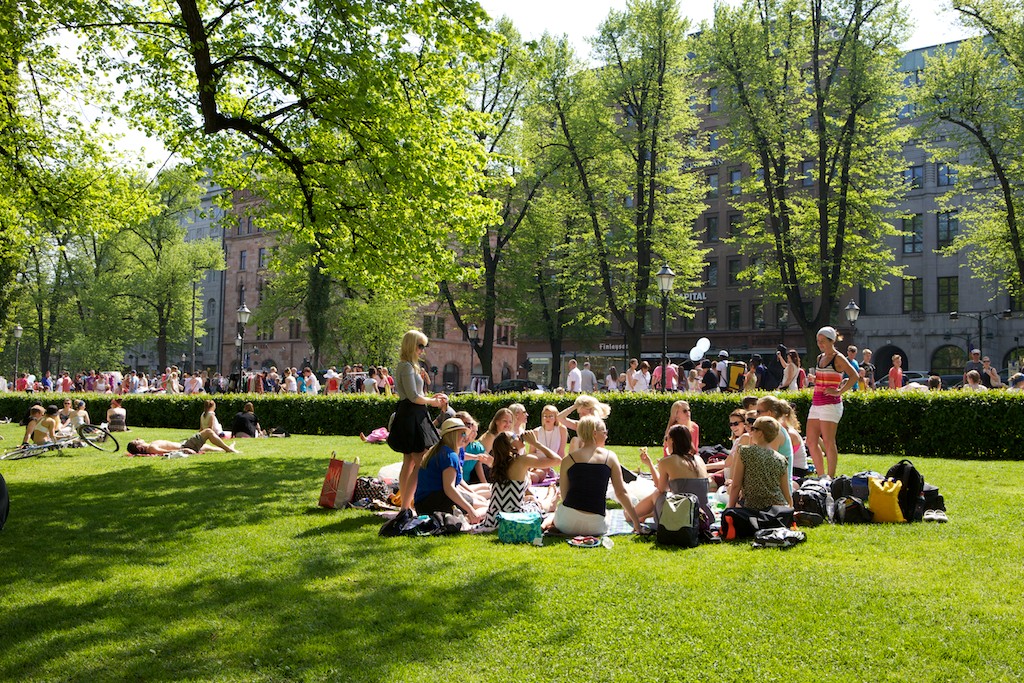Helsinki Capital Region is in a good position to become a leading international cleantech metropolis. This is the conclusion of a study commissioned by Sitra from Ramboll Finland Pääkaupunkiseutu kansainvälisen tason cleantech-veturiksi (Helsinki Capital Region as a global driver of cleantech). Based on various dimensions of sustainability, the study analysed the Helsinki Region’s position in relation to the world’s top cities. In the role of a leading cleantech metropolis, the Helsinki Capital Region would attract foreign investors and investments to Finland in a completely different way to now.
The benchmark study suggests that development in the Helsinki Capital Region should focus on the energy system, mobility and traffic, and the cleantech business. This result almost completely accords with the concerns of the management of the Climate Leadership Council’s member firms and the priorities of the government’s cleantech strategy. The latter envisages that Finland will become a global superpower in the cleantech business and a pioneer in bioeconomy by 2020.
“Cross-border co-operation and uniform best practices are worth pursuing, and provide excellent tools for creating a proper framework for developing the cleantech business. Ambitious, joint goals must be set first, in order for the practical implementation to proceed in the best possible way,” says Senior Lead Tiina Kähö of Sitra.
The study’s recommendations for strong improvement targets include a common platform for cleantech business development. This will enable a broad-based and effective circular economy and bring significantly more business and export potential to Finnish companies. This giant leap is based on existing strengths –active citizens and communities, the utilisation of open data and integrative ICT, and the sustainable approach to the built environment.
“According to the study, the practical side would mean state involvement in key regional energy solutions, increasing and promoting opportunities for car sharing, and embracing digitisation and the use of open data,” says Kähö. “Cities would also need to embed resource efficiency targets in public procurement, facilitate the launch of new businesses, promote ecological zoning, engage in more infill development and enhance the materials and energy efficiency of existing neighbourhoods.”
The study recommends creating structures and operating models aimed at cohesion and co-operation within the Helsinki Capital Region, while promoting clean energy and the cleantech business and firming up the related common goals. City leaders are eager to discuss such co-operation, which is currently being developed under Sitra’s guidance.
Urbanisation and industrialisation are causing wide-ranging environmental problems in all corners of the world. The business potential for solutions promoting sustainable development is particularly good in the markets of emerging and developing countries. To turn this potential into reality, Finland needs a world-class reference area in which companies can develop and showcase their low-carbon solutions. Helsinki Region can provide a suitable setting for such activities. This would present Finnish companies with a stepping stone to the growing global cleantech market.
In recent years, several major co-operation initiatives for solving climate and environmental challenges have been started around the world, such as the C40 Cities Climate Leadership Group (C40), led by former mayor of New York Michael Bloomberg. C40’s 69 members account for almost one fifth (18%) of global GDP.
Recently, the Helsinki Capital Region’s transformation into an international superpower in clean energy and cleantech has begun to appear on the executive agendas of top Finnish firms. Also, SMEs are well prepared for this: Finland ranked second in this year’s Global Cleantech Innovation Index comparison.
“Sitra is willing to support the cities and companies in the Helsinki Capital Region in practical trials that will strengthen their competitive advantage through an active domestic market,” says Kähö.
In becoming a leading metropolis in clean energy and cleantech, the setting of ambitious common goals will be a key issue. These should be set high enough to enable the Helsinki Capital Region to join other Nordic capitals in the C40 network of innovative cities. The objectives could involve ranking within top three of the world’s metropolitan areas in selected themes in a benchmark study during years 2020–2030.
Close-knit regional co-operation enabling cities, companies and communities to build an internationally significant reference area for the domestic market will benefit the business and export activities of companies and help make the Helsinki Region even more attractive. There are many good examples of ongoing regional co-operation within the Helsinki Capital Region, such as those related to the organisation of waste management, transport and traffic, and healthcare services.
For further information, please contact
Tiina Kähö, Senior Lead, Sitra, tel. +358 40 591 3847
Mirja Mutikainen, Business Manager, Energy and Bioeconomy, Ramboll Finland Oy, tel. +358 50 314 1521
Tuula Sjöstedt, Communications and Public Affairs Lead, Sitra, tel. +358 50 373 8601


Recommended